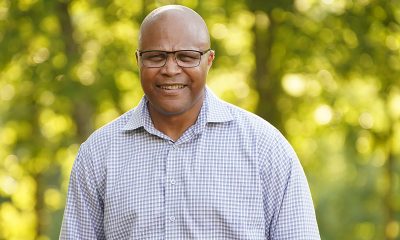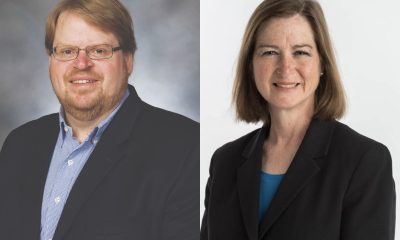Arts & Entertainment
Laughing with Lily
Tomlin on getting married, Ernestine and Edith, Lucy, Carol and more
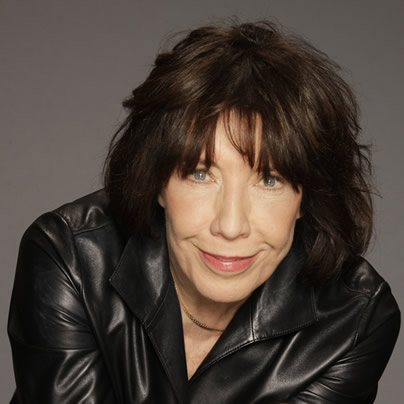
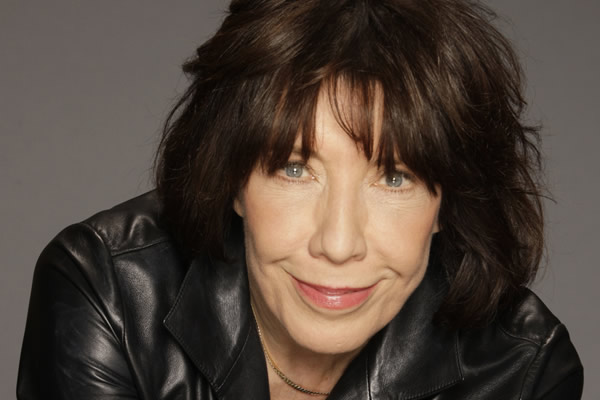
Lily Tomlin’s live show updates her classic characters with modern situations. (Photo by Greg Gorman)
Lily Tomlin
Music Center at Strathmore
5301 Tuckerman Lane
Mar. 28 at 8 p.m.
Comedic legend Lily Tomlin plays the Strathmore Friday night. Last week she spent a delightful hour with us by phone from her Los Angeles home in — as is typical for the actress — a leisurely, rambling-in the-best-way conversation that few stars of her caliber make time for. Her comments have been slightly edited for length.
WASHINGTON BLADE: How has comedy changed since you began? This show revives some classic characters and bits, but do you find some elements might have been a scream in the ‘60s but fall flat today?
LILY TOMLIN: I imagine you wouldn’t find a whole lot that would still be relevant. I couldn’t say that in a totally general way but overall, I would say the humor then would have been relative to something that was going on then. We didn’t deal so much with universal truths in the sense of the human condition. We did a lot of snappy stuff that was going on at the time. When we were doing “Laugh-In,” Ronald Reagan was the governor and later he was the president so a lot of stuff we said was just Reagan and you’d be watching “Laugh-In” on some cable show or something and they wouldn’t say governor or president, they just said Ronald Reagan or Reagan, so much of what we said still applied when he was president. But in general, the values and taboos of society have changed a lot in 40 years.
BLADE: Is it hard, then, to take your classic characters and make them work now on stage in a way that doesn’t feel frozen in time?
TOMLIN: Well, it’s just what you choose to put in their mouths. The last job Ernestine had was working for Health Care Insurance Corporation denying health care to everyone and prior to that she had a reality webcast chat show all during the Bush administration so she could call the president and presumably she had a webcam so she could see what he was doing. She could call Cheney or anybody and talk about something that was going on at the time.
BLADE: You don’t think Ernestine would still be funny at the switchboard?
TOMLIN: No because we hardly even have switchboards anymore and people barely know what an operator is. But that overbearing bureaucratic dominance still serves in other places. She left the phone company because they were no longer, you know, powerful or omnipotent. She would have had to compete for business.
BLADE: What would Ernestine think of the revelations last year that Big Brother is listening in on everything?
TOMLIN: I’ve been trying to come up with a really great NSA sketch. The secret of it would be (slipping into Ernestine’s voice): “A gracious hello — this is the NSA, the only government agency that actually listens (snorts).”
BLADE: I’ve seen you use her in unscripted formats, too. I remember Ernestine being interviewed once by Joan Rivers. I have no idea if she gave you the questions ahead of time or not, but that would seem quite nerve-wracking to me — the pressure to be funny outside of the sketch format. Was it?
TOMLIN: Well, I know her attitude. It’s not like Ernestine doesn’t live somewhere in my body, she does. Certain characters are especially good for that if they’re really opinionated and fairly short sighted or self interested and don’t care about other people’s feelings. Then they probably improvise fairly well.
BLADE: There was an op-ed shortly after you got married in which a lesbian wrote “we came of age in a time when her one-woman shows changed how we understood ourselves as lesbians and feminists.” To what degree in the ‘70s were you aware or were you aware that your work was not just being enjoyed by lesbians but sort of exalted and claimed in a sense?
TOMLIN: Maybe claimed a little. My mother and dad are from Kentucky and even though I was born in Detroit, because I’m well known and presumably semi-liked in Kentucky, I don’t know for sure, but Kentucky sort of claims me in a way. Very often I read that I was “Kentucky’s own” or “born in Kentucky.” In fact, I put my hands in cement there in some Kentucky hall of fame or something. I told them, “But I’m not really from Kentucky,” and they said, “No one will care. They’ll be glad and they’ll hope you are from Kentucky.” So I’m sure lesbians and other feminists, if I was good and doing good stuff and strong and intelligent, I’d think they’d want to claim me in a sense that, well, you know, “She’s one of us” or whatever people might say in that kind of reference. I’m sure even Mrs. Duggar, if she had one kid that became president of the United States, she might single him out. In any other case, she might not. “These are my kids. Oh, this is Robert, my son, the president.” I don’t know how that stuff goes but even if it did, I’m grateful for it in a sense because, you know, I want to communicate with people. Very often I really want to validate people, validate humanity to some extent. We’re so invalidated in so many other ways and disregarded. Dismissed or thought of as just some lump mass of humanity that’s disposable and exploitable. Rotten to the core.
BLADE: How does comedy validate?
TOMLIN: Just showing what you love and human situations and human attitudes and you show the bad parts, but you show them in a way that we all possess them. We’re all really in the same spaceship together. Politicians, to me, are a separate entity because they’re in a place where they’re actually affecting our lives in profound ways and attempting to do so and not always with the absolute soul of integrity.
BLADE: I found (partner) Jane’s (Wagner) blog a few years ago quite funny when she wrote the blow-by-blow of trying to find the right hot dogs and sunscreen on the Fourth of July. If that was any indication of the interplay between the two of you on something as trivial as finding hot dogs, how on earth did you discuss and settle on when, how or if to get married? (Tomlin and Wagner were married on New Year’s Eve after 42 years together.)
TOMLIN: We didn’t talk about it for a long time because we lived together so long where that wasn’t even a glimmer of a hope or a possibility. … She and I would have liked to have been married and last fall, maybe October or November or something, I said, “You know, maybe we should.” We were both of the same mind … so we just decided to get married. I don’t know if you’ve been on our Facebook, but we made a little thing about it and showed where we went to the license bureau and we just wanted a nice, simple, sweet, quiet little ceremony so we went to Van Nuys, we went out of the way because we didn’t want to be usurped, our control of the situation, you know, “Oh, Jane and Lily were at the license bureau.” But there was so much there, that we made this little vignette of it and it shows us in front of the building. It’s just this old, one-story kind of flat motor vehicle kind-of place. There’s nothing grand or majestic about it, like some old courthouse from another era or anything. And then you stand in line with a bunch of other people and there were young people in tuxedos and bridal dresses. Then you go in another room and this woman who looks like Ruth Bader she has on a black cloak, and she takes them in there and marries them right on the spot. Families were there and they’re so dear. These couples getting married, and you think, “Oh God, help us, all these young kids getting married and you don’t even —,” you know, I worry about them like a mother. Do they have a place to live, any kind of a decent job, are they gonna have kids, and they don’t have any idea what it takes to raise those kids, the money it costs. So we get up to the window and we get our license and then we go outside and there was a hot dog stand with a little cart and a multi-colored umbrella, so we used that as our backdrop. It’s just like four little photos. Now you’re gonna go and expect like a feature film or something, but it was just our little way to acknowledge it. We didn’t post it till after we got married, which we did on New Year’s Eve.
BLADE: Does it feel any different? Was there any psychological shift or anything you weren’t expecting?
TOMLIN: I haven’t perceived it. Maybe there is, kind of. The nice part about it is that it’s out in the public. Not that that many people would have known we were together anyway, but when it’s reported that you’re married, it’s so kind of official. The best part is that Jane is from Tennessee and my parents are from Kentucky so we have southern families and my family more than hers were more fundamentalist …
BLADE: You were raised Southern Baptist, right?
TOMLIN: Well, my dad wasn’t really. He was a drinker and a gambler and I went to the bookie joints with him and every Sunday when I was a kid, because of all the fire and brimstone that goes on in the fundamentalist church, I would sit up in the kitchen with my dad. We had an old Formica table and I was maybe 5 or 6 or 7 and I was worried about my father not going to heaven. My dad would be having a beer and some sardines and crackers like on a Sunday morning and my mother is getting ready for church and I’d be up there in the middle of the table trying to get daddy to go to church with us. Argh. Anyway, my mother and dad are both totally individual and funny … so I would go to the bookie joints with my dad on Saturdays and to church with my mom on Sundays. Let’s see, where was I going with this — the best part of the marriage thing, aside from us being together, was that we heard from a lot of relatives, not my mother’s generation really, ‘cause they’re mostly gone, they would have been a little taken aback, but the next generation, we got lots of cards and messages from relatives that you never would have gotten even 10 years ago, congratulating us. Very loving, very sweet. So I thought that was the most miraculous part of it.
BLADE: You were on the “Merv Griffin Show” several times early in your career. Did you have any awareness at the time that he was gay?
TOMLIN: No, I don’t think so. Well, by the time I was in my 20s, I suppose I did. There were these rumors that young men were always kind of in his sphere somewhere so yes, I heard all that kind of gossip, especially being gay, other gay people fostered that kind of gossip. They were glad to hear about something like that. So yes, it was probably fairly well considered and I’m sure I was privy to that conversation at some point.
BLADE: I know the story about the Time magazine offer (in 1975, they offered her the cover if she’d come out) but then years later, like maybe in the late ‘80s or ‘90s you were doing stuff like “Celluloid Closet,” “The Band Played On” and “Will & Grace.” Was there a point where you decided to start saying yes to those kinds of projects that you might not have done, say, a decade before?
TOMLIN: I never would have said no to them but I might not have called a press conference to declare my sexuality. At that time, first of all, it gets to be a little bit grandstandy for someone like me. … I called Vito Russo and told him about the Time offer and said, “I just don’t know if I can handle it, I’m a little bit insulted, I’m a little bit everything,” because it was more like they just needed a gay person. It was like with the actor Cliff Gorman who was in “Boys in the Band,” he was straight but he was very worried about his career so whenever he gave an interview, he’s always make sure you knew he wasn’t gay. So we just flipped it around, you know, and when I did end up giving an interview to Time, we made sure they understood I wasn’t straight and we put a little bit about that on the album we were working on at the time, “Modern Scream.” And of course nothing was ever said about it, written about it, anything. The album wasn’t a big hit. It wasn’t like I was some big recording artist who sold a lot, but my early albums had been fairly successful because of “Laugh-In,” Ernestine and Edith. … I didn’t want to decline it, but I didn’t want to accept it, so I decided, “I’m not going down without throwing a punch.”
BLADE: Now at times, some up-and-comers use it in reverse — being out as part of their marketing campaign. For people who are genuinely talented, do you think that’s harmful?
TOMLIN: It depends on what kind of work they’ve done or they’re doing. Look at Neil Patrick Harris. He’s hugely popular and sought after, but of course, we knew him as a kid. But he’s a very good singer, actor, dancer and he’s got a lot of charm. Things have turned around so profoundly but the thing that terrifies you is if some right wing evangelist kind of person gets in, or we lose the Senate or we get a Republican president, you don’t know how far they will go to repeal something. There’s such a sense of celebration now and it’s kind of taken for granted but if some crazy person gets in there and there’s that limitation and philosophy where they spiritualize everything, they just nail down on these issues and they want to repeal any kind of progressive advance. It’s pretty scary when you see what’s going on in other parts of the world.
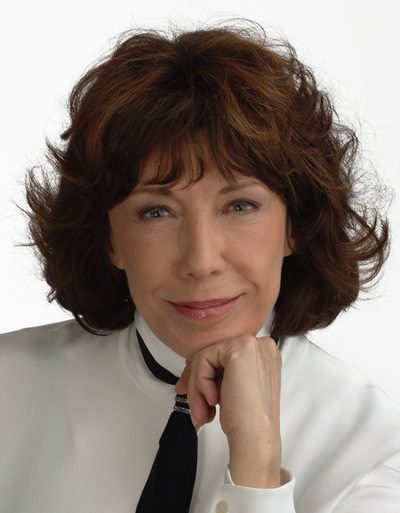
Lily Tomlin won the Mark Twain Prize for American Humor at the Kennedy Center in 2003. She’s in the region this weekend for a show at the Strathmore. (Photo by B. Patterson)
BLADE: Yeah, like what we saw in Russia during the Olympics.
TOMLIN: Right. We did a little thing — actually I wish we could have been in D.C. when we did it, but I say I was thrown in jail but thank God, I knew Ernestine and she got us out. So we make fun of it. We made a graphic where we show Putin bare-chested on a horse and Ernestine is riding bareback behind him.
BLADE: So your show isn’t just Lily’s greatest hits then.
TOMLIN: No.
BLADE: Do you enjoy working on the material?
TOMLIN: I do. We have some pieces that we still do that work well because I love them so much and I think they’re terribly funny. So it’s kind of a mix. We’re trying to do something worthwhile but that is also fun and hopefully thoughtful, hopefully even moving in some way at some point. How old are you?
BLADE: 39, but you know gay men often know pop culture before their time way more than straight men.
TOMLIN: Oh my God, yes. Paul, this photographer and musician who works with me, he kills me because there’s nothing that happens on a daily basis at our house, office or anything, that he can’t relate it to a Lucy episode.
BLADE: That’s a great quality to have.
TOMLIN: Oh, it’s so dear. I just scream laughing.
BLADE: What’s your favorite?
TOMLIN: Well, when I was a kid, “slowly I turn,” because it looked like the kind of performance piece I could do. The ballet class, too.
BLADE: You guested on “The Carol Burnett Show” right?
TOMLIN: Oh yeah.
BLADE: Lots of people are on sitcoms but you and Carol and a few others are known for certain characters. Did you feel comedic camaraderie with her?
TOMLIN: Well, I’d known her a long time. One very hot moment for me, one very happy moment, I was at CBS maybe I was doing my first special or maybe I was just guesting on some show like Glen Campbell or something. When I got “Laugh-In,” Glen Campbell was the first show I guested on and Carol, of course, shot at CBS. I was in the ladies’ room and she came in and threw her arms around me and called my name. That just made me very happy that she knew who I was and was so demonstrative with me. She’s an extremely dear person anyway.
BLADE: Did you know Lucille Ball?
TOMLIN: I read an article with her once and they were asking her about new young comedians, mostly girls, and when they got to me, she said, “I don’t get her.” My heart broke but later I met her and she told a very funny story, and acted it out for about 20 minutes, about how she had had to get a root canal the day of the Tonys. … To hear her tell it in person was just sublime.
BLADE: She seemed like she could be a bit of a tough customer. Crusty, maybe.
TOMLIN: Everybody says that, yeah.
BLADE: Maybe she felt more liberated as she got older. More candid. Do you ever feel that way?
TOMLIN: Not really. I have a hard time realizing I’m as old as I am. I don’t feel that old. I still feel innocent in some ways.
Sports
Bisexual former umpire sues Major League Baseball for sexual harassment
Brandon Cooper claims female colleague sexually harassed him
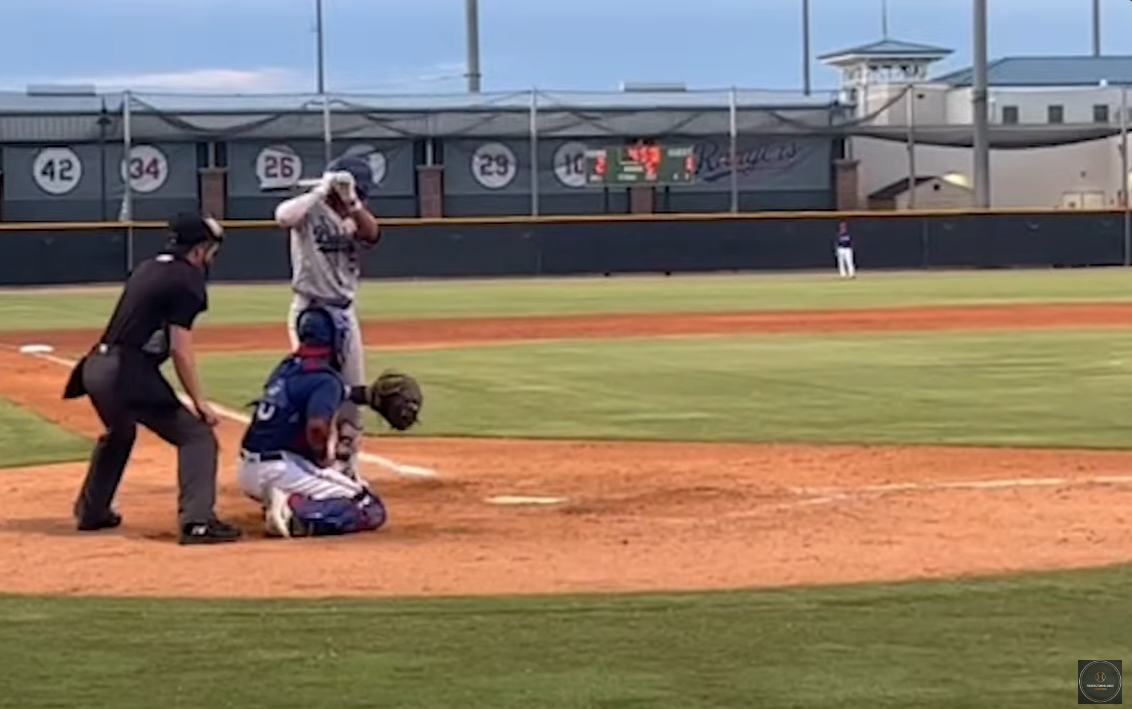
A fired former umpire is suing Major League Baseball, claiming he was sexually harassed by a female umpire and discriminated against because of his gender and his sexual orientation.
Brandon Cooper worked in the minor league Arizona Complex League last year, and according to the lawsuit he filed Wednesday in federal court in Manhattan, he identifies as bisexual.
“I wanted my umpiring and ability to speak for itself and not to be labeled as ‘Brandon Cooper the bisexual umpire,’” he told Outsports. “I didn’t want to be labeled as something. It has been a passion of mine to simply make it to the Major Leagues.”
But that didn’t happen. Instead of being promoted, he was fired. His suit names MLB and an affiliated entity, PDL Blue, Inc., and alleges he had endured a hostile work environment and wrongful termination and/or retaliation because of gender and sexual orientation under New York State and New York City law.
“Historically the MLB has had a homogenous roster of umpires working in both the minor and major leagues,” Cooper claims in his suit. “Specifically, to date there has never been a woman who has worked in a (regular) season game played in the majors, and most umpires are still Caucasian men. To try to fix its gender and racial diversity issue, defendants have implemented an illegal diversity quota requiring that women be promoted regardless of merit.”
Cooper claims former umpire Ed Rapuano, now an umpire evaluator, and Darren Spagnardi, an umpire development supervisor, told him in January 2023 that MLB had a hiring quota, requiring that at least two women be among 10 new hires.
According to the suit, Cooper was assigned to spring training last year and was notified by the senior manager of umpire administration, Dusty Dellinger, that even though he received a high rating in June from former big league umpire Jim Reynolds, now an umpire supervisor, that women and minority candidates had to be hired first.
Cooper claims that upon learning Cooper was bisexual, fellow umpire Gina Quartararo insulted him and fellow umpire Kevin Bruno by using homophobic slurs and crude remarks. At that time, Quartararo and Cooper worked on the same umpiring crew and being evaluated for possible promotion to the big leagues.
This season, Quartararo is working as an umpire in the Florida State League, one of nine women who are working as minor league umpires.
Cooper said he notified Dellinger, but instead of taking action against Quartararo, he said MLB ordered Cooper to undergo sensitivity training. According to his lawsuit, he was also accused of violating the minor league anti-discrimination and harassment policy.
Cooper’s suit says he met with MLB Senior Vice President of Diversity, Equity and Inclusion Billy Bean — who the Los Angeles Blade reported in December is battling cancer.
The lawsuit says at that meeting, Bean told the umpire that Quartararo claimed she was the victim, as the only female umpire in the ACL. Cooper said he told Bean Quartararo regularly used homophobic slurs and at one point physically shoved him. He also claims that he has video evidence, texts and emails to prove his claim.
But he said his complaints to Major League Baseball officials were ignored. His lawsuit said MLB passed him over for the playoffs and fired him in October. He said of the 26 umpires hired with Cooper, he was the only one let go.
Through a spokesperson, MLB declined to comment on pending litigation. Quartararo has also not publicly commented on the lawsuit.
a&e features
Eastern Shore chef named James Beard Finalist
Harley Peet creates inventive food in an inclusive space

In a small Eastern Shore town filled with boutiques, galleries, and the occasional cry of waterfowl from the Chesapeake, Chef Harley Peet is most at home. In his Viennese-inflected, Maryland-sourced fine-dining destination Bas Rouge, Peet draws from his Northern Michigan upbringing, Culinary Institute of America education, and identity as a gay man, for inspiration.
And recently, Peet was named a James Beard Finalist for Best Chef: Mid-Atlantic – the first “Best Chef: Mid-Atlantic” finalist representing the Eastern Shore.
Peet, after graduation from the Culinary Institute of America, took a position as sous chef at Tilghman Island Inn, not far from Bas Rouge. Falling in love with the Eastern Shore, he continued his passion for racing sailboats, boating, gardening, and fishing, and living his somewhat pastoral life as he opened Bas Rouge in 2016 as head chef, a restaurant part of the Bluepoint Hospitality group, which runs more than a dozen concepts in and around Easton, Md.
Coming from a rural area and being gay, Peet knew he had his work cut out for him. He was always aware that the service and hospitality industry “can be down and dirty and rough.”
Now as a leader in the kitchen, he aims to “set a good example, and treat people how I want to be treated. I also want to make sure if you’re at our establishment, I’m the first to stand up and say something.”
The Bas Rouge cuisine, he says, is Contemporary European. “I’m inspired by old-world techniques of countries like Austria, Germany, and France, but I love putting a new spin on classic dishes and finding innovative ways to incorporate the bounty of local Chesapeake ingredients.”
His proudest dish: the humble-yet-elevated Wiener Schnitzel. “It is authentic to what one would expect to find in Vienna, down to the Lingonberries.” From his in-house bakery, Peet dries and grinds the housemade Kaiser-Semmel bread to use as the breadcrumbs.
Peet works to support the LGBTQ community inside and outside of the kitchen. “I love that our Bluepoint Hospitality team has created welcoming spaces where our patrons feel comfortable dining at each of our establishments. Our staff have a genuine respect for one another and work together free of judgment.”
Representing Bluepoint, Peet has participated in events like Chefs for Equality with the Human Rights Campaign, advocating for LGBTQ rights.
At Bas Rouge, Peet brings together his passion for inclusion steeped in a sustainability ethic. He sees environmental stewardship as a way of life. Peet and his husband have lived and worked on their own organic farm for several years. Through research in Europe, he learned about international marine sourcing. Witnessing the impacts of overfishing, Peet considers his own role in promoting eco-friendly practices at Bas Rouge. To that end, he ensures responsible sourcing commitments through his purveyors, relationships that have helped create significant change in how people dine in Easton.
“I have built great relationships in the community and there’s nothing better than one of our long-standing purveyors stopping in with a cooler of fresh fish from the Chesapeake Bay. This goes especially for catching and plating the invasive blue catfish species, which helps control the species’ threat to the local ecosystem.
Through his kitchen exploits, Peet expressed a unique connection to another gay icon in a rural fine-dining restaurant: Patrick O’Connell, of three Michelin starred Inn at Little Washington. In fact, Peet’s husband helped design some of O’Connell’s kitchen spaces. They’ve both been able to navigate treacherous restaurant-industry waters, and have come out triumphant and celebrated. Of O’Connell, Peet says that he “sees [his restaurants] as canvas, all artistry, he sees this as every night is a show.” But at the same time, his “judgment-free space makes him a role model.”
Being in Easton itself is not without challenges. Sourcing is a challenge, having to either fly or ship in ingredients, whereas urban restaurants have the benefit of trucking, he says. The small town “is romantic and charming,” but logistics are difficult – one of the reasons that Peet ensures his team is diverse, building in different viewpoints, and also “making things a hell of a lot more fun.”
Reflecting on challenges and finding (and creating) space on the Eastern Shore, Peet confirmed how important it was to surround himself with people who set a good example, and “if you don’t like the way something is going … move on.”

Team DC, the umbrella organization for LGBTQ-friendly sports teams and leagues in the D.C. area, held its annual Night of Champions Awards Gala on Saturday, April 20 at the Hilton National Mall. The organization gave out scholarships to area LGBTQ student athletes as well as awards to the Different Drummers, Kelly Laczko of Duplex Diner, Stacy Smith of the Edmund Burke School, Bryan Frank of Triout, JC Adams of DCG Basketball and the DC Gay Flag Football League.
(Washington Blade photos by Michael Key)



















-

 State Department3 days ago
State Department3 days agoState Department releases annual human rights report
-

 Maryland4 days ago
Maryland4 days agoJoe Vogel campaign holds ‘Big Gay Canvass Kickoff’
-

 Politics3 days ago
Politics3 days agoSmithsonian staff concerned about future of LGBTQ programming amid GOP scrutiny
-

 The White House2 days ago
The White House2 days agoWhite House debuts action plan targeting pollutants in drinking water

